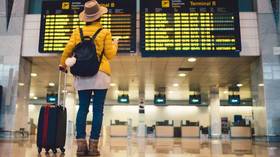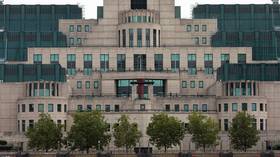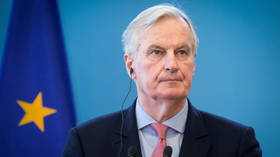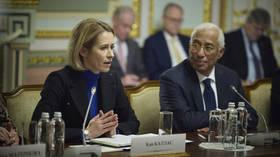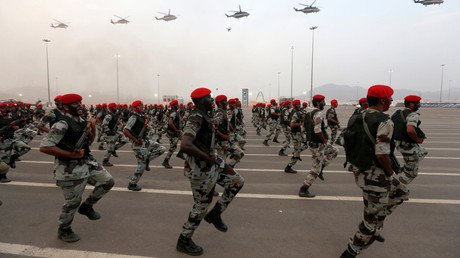Profit v passenger safety: Why the US was the last to ground troubled Boeing jets
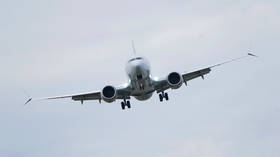
Despite two deadly crashes in five months the US Federal Aviation Administration (FAA) and Boeing insisted on the airworthiness of the 737 Max. It wasn't until the rest of the world grounded the plane that the US finally conceded.
Airplane manufacturers and airlines commonly base their decisions on passenger safety versus the companies' economic interests. RT talked to analysts to look deeper into the issue and understand why it took the US so long to make the right decision.
Boeing is America's most important exporter by value, so the company's current problems are set to hit the US really hard, according to Alessandro Bruno, independent international affairs and aerospace industry analyst.
Also on rt.com Global airlines face huge losses due to grounding of Boeing 737 MAX 8"Moreover, China, which is the second biggest market for Boeing outside the US, may use the current situation as leverage in trade talks with the White House," the expert told RT.
The FAA was practically forced to ground the troubled jet after US President Donald Trump "surprisingly turned out to be the only adult in the room," when he insisted on halting the use of the 737 Max 8 jet, according to Bruno.
"Boeing should have acted responsibly and pulled those planes out. Now they have to pay a lot more to fix the problem. They have to pay for the design and technical changes, which means several billions of dollars," he said.
The decision was made under international pressure, as most of the world's regulators had chosen to ground the jet, according to Pyotr Pushkarev, chief analyst at online broker with TeleTrade Group of Companies.
"If a similar crash happened in the US, or to the jets operated by the country's airlines, the US citizens could identify the absence of any actions from the government as criminal connivance," he wrote in an email to RT.
So far, the world's biggest aerospace group has suffered big losses due to the shrunk market cap after its shares plummeted amid the latest crash and series of bans globally.
"Boeing's shares rallied from $300 around Christmas time to nearly $440. The crash of 737 Max 8 has washed nearly 15 percent out of its stock with more losses expected to come," Pushkarev added.
According to Bruno, the company should be ready to face legal costs, as the US is the most litigious society on Earth. The affected airlines reportedly have every right not only to sue Boeing, but to cancel their orders for the troubled airplanes, with the producer not having much power to stop them.
"Apart from legal complaints from affected airlines, Boeing may face lawsuits from families of those killed in the crashes, which could reach up to $2 million per passenger. Moreover, investors, especially in the US, may file suits against the company, as Boeing is seen as the top stock of the market," the expert said.
The series of bans of Boeing's best-selling jet may lead to a further plunge in the company's market value, an unavoidable lag in competition with its European rival Airbus, Vladimir Rojankovski, an expert at the International Financial Center in Moscow, told RT.
Also on rt.com ‘Boeing in big trouble’ for not immediately grounding jets – aviation law expert tells RTWhen it comes to responsibilities taken by air carriers, they decided not to take any steps until they were forced to do so, because the losses of the airlines could be immense, according to Katia Frenkel, head of the analytics department at FinIst investment company.
"Air carriers buy airplanes to fly them, to get profit from those purchases. A plane that is kept in a parking shelter does not bring money. Moreover, the company has to pay airports to park its jets. They have to decide which planes to replace the grounded ones with," the expert said.
Both the FAA and Boeing should also be ready for lawsuits from passengers and air carriers, as the agency had been refusing to ground the 737 Max, insisting on its airworthiness until Trump's decision to do so, according to Bruno.
Also on rt.com Airlines lining up for Boeing compensation over grounded jets"Many airlines will lose business, as they had lost traffic. Now, companies will have to make alternative decisions on how to compensate financial losses for not using one of the world's most popular jets," Bruno said, stressing that more than 300 planes have been grounded, while a few thousands are currently on order.
However, to demand compensation and to receive compensation are two different issues, according to Frenkel.
"That will lead a great number of litigations that could be simmering for years, if Boeing doesn't declare bankruptcy." The analyst said that in the worst-case scenario, the company may lose tens of billions of dollars if airlines cancel their orders. "Boeing could lose much less if the producer recommended its customers to temporarily stop using the jet."
For more stories on economy & finance visit RT's business section
